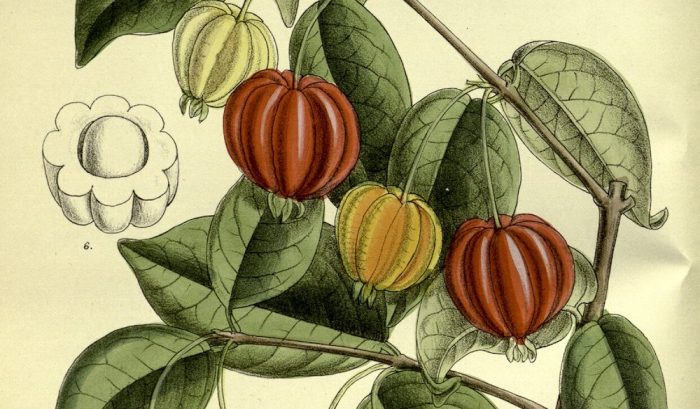*Editor’s Note: Elephant is not your doctor or hospital. Our lawyers would say “this web site is not designed to, and should not be construed to provide medical advice, professional diagnosis, opinion, or treatment to you or any other individual, and is not intended as a substitute for medical or professional care and treatment. Always consult a health professional before trying out new home therapies or changing your diet.” But we can’t afford lawyers, and you knew all that. ~ Ed
Do you get enough vitamin C?
Especially with winter approaching, it is important to find good sources of this essential vitamin, which protects our fat-soluble vitamins and balances vata all winter long.
For humans, consuming vitamin C is essential because we cannot make our own like other mammals do. Therefore, consuming enough vitamin C is a requirement for optimal health. In summer, the abundance of fruits and vegetables makes this pretty easy. But in winter, fresh, vitamin C-rich foods are scarce.
While most folks get enough vitamin C to avoid scurvy, which historically plagued sailors and the impoverished, vitamin C deficiencies are still quite common, though on a more subclinical level.
According to Ayurveda, immune-boosting vitamin C and bioflavonoid-rich citrus fruits, along with certain berries (like amalaki) are eaten year-round but are fall-and winter-harvested to insure protection of the body’s essential fatty acids and fat-soluble vitamins, which calm the nervous system and balance vata in the vata-aggravating winter months.
The Vitamin C and Bioflavonoid Power Punch
In nature, vitamin C (or ascorbic acid) is never found in isolation, nor is there a vitamin C tree. It is almost always found in synergy with a variety of bioflavonoids, most commonly in citrus fruits. Few of us consume enough citrus to get the vitamin C-citrus-bioflavonoids to deliver to potential benefits natural vitamin C-rich foods have to offer.
Bioflavonoids are commonly used in Europe to support healthy lymphatic function and maintain healthy arteries and optimal blood vessel circulation. In the United States, bioflavonoids are used to support tissue and joint comfort, the body’s normal response to inflammation, respiratory and eye health, and maintenance of cardiovascular health.
In addition, new studies find that citrus bioflavonoids can cross the blood-brain barrier and, in combination with the brain’s unique ability to store vitamin C, support cognitive function and nerve protection in the brain.
Vitamin C is maintained in relatively high concentrations in the brain; it is essential to maintaining healthy mood and brain function because it facilitates conversion of dopamine to norepinephrine and enhances interneuronal nerve-to-nerve communication.
As cell-signaling agents, bioflavonoids are believed to support healthy cell growth and normal cell-life regulation. They also stimulate detoxification enzymes, decrease vascular cell adhesion molecules, increase vasodilation, and support healthy platelet function.
With more than 4,000 bioactive bioflavonoids identified, they are an exciting area of research, especially in their association with vitamin C. Interestingly, bioflavonoids have also been shown to elicit a positive change in the microbiome, suggesting the gut bacteria’s need for vitamin C and its synergistic bioflavonoid compounds.
Did You Know that Collagen Needs Vitamin C?
We’ve all heard that vitamin C is good for the immune system, though perhaps you’ve heard conflicting reports on its effectiveness—so let’s dig into the science.
First, studies have found that when we are under mental, emotional, physical, or chemical stress, such as from smoking, pollution, radiation (like from flying), heavy metal exposure (say from fish), or extreme temperatures, requirements for vitamin C go up dramatically.
When we don’t get enough vitamin C, say because we’ve been under stress, one of the first tissues to feel the impact is collagen—yes, the protein that provides elasticity to our skin and joints and youthfulness to our organs.
Collagen is a fundamental component of bones, tendons, ligaments, blood vessels, skin, gums, and joints. Ultimately, the health of these tissues depends on vitamin C.
Vitamin C, Iron, and Energy
Energy generation from fatty acids is vitamin C-dependent as well, since it is required for synthesis of carnitine, an energy molecule that delivers long-chain fatty acids (like fish oils and olive oil) into the mitochondria for energy production.
Vitamin C is also critical for absorption and utilization of iron. Iron deficiency is the number one deficiency in the world, affecting half of school-age girls and one third of menstruating women.
Vitamin C and Immunity
To answer the immunity question, studies have found that vitamin C provides immune stimulation as immune cells absorb and concentrate vitamin C. Immune cell activity, particularly T-cell function and phagocytosis (or cellular detox), is found to be enhanced by supplementing with vitamin C. Vitamin C has also been found to provide adrenal support and is a cofactor for several metabolic enzymes.
Way back in 1972, a randomized, double-blind, placebo-controlled study of 1,000 subjects taking 1,000 mg of vitamin C per day provided support for use of vitamin C supplementation for common immune challenges. The supplementation group missed significantly fewer days from work/activities and had fewer days per episode of immune challenge; in addition, significantly more subjects taking vitamin C remained symptom-free throughout the study.
Do you get enough vitamin C in the winter? Try getting more and see if you need fewer sick days!










Read 0 comments and reply